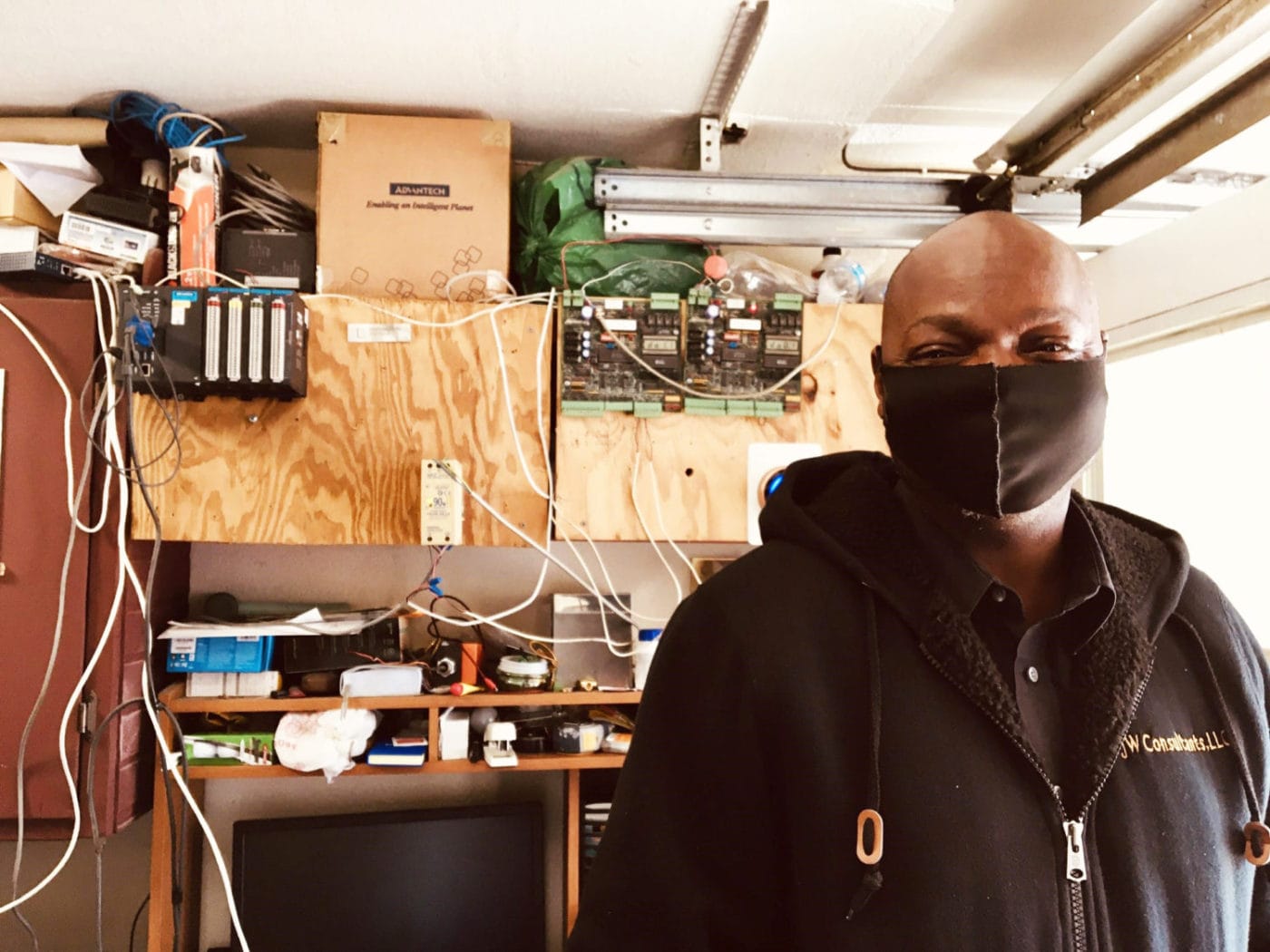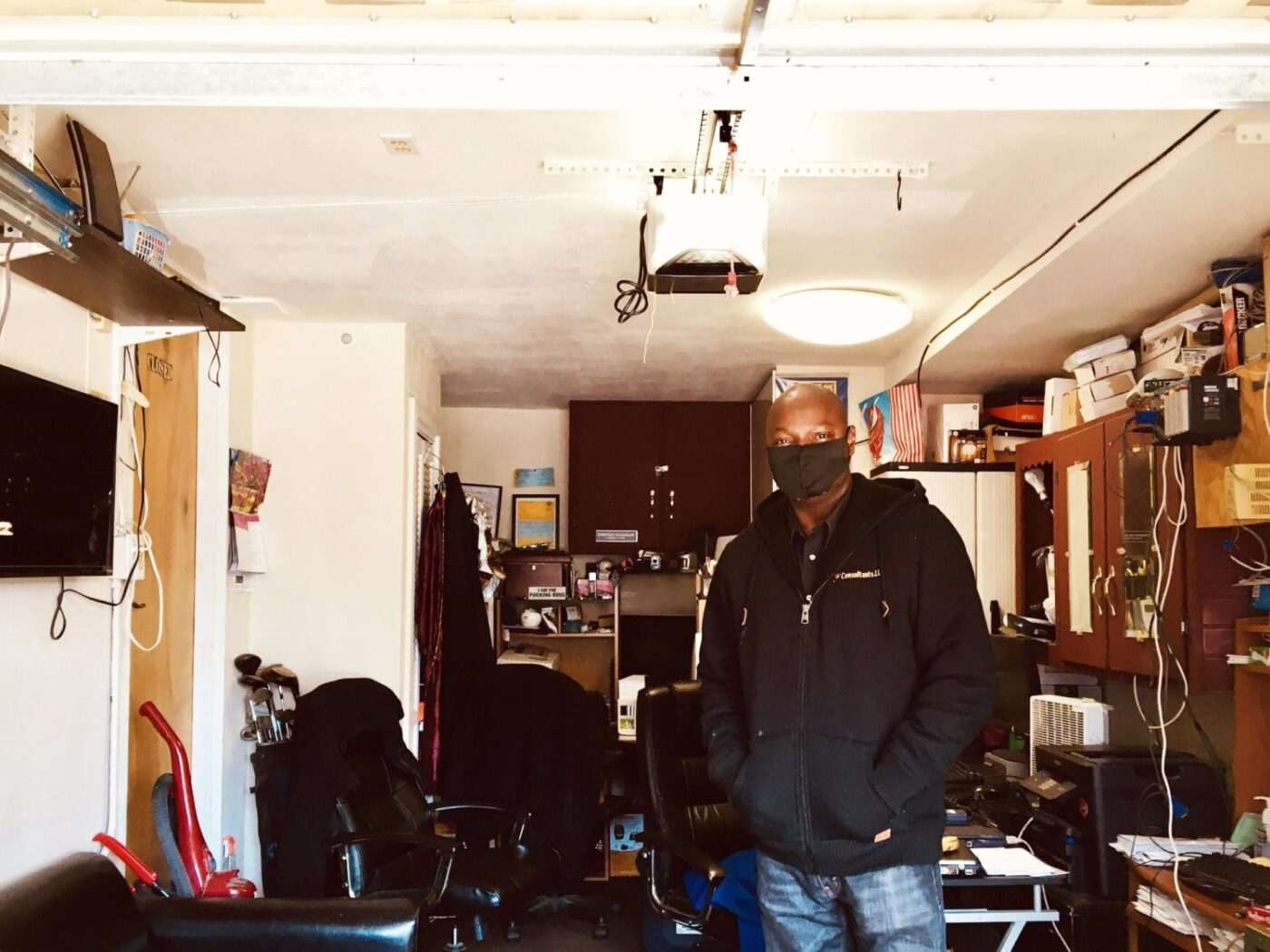
by Rosina Ghebreyesus
When faced with systemic obstacles, financial instability and the lack of essential resources, making sure to get counted in the census can seem trivial. In the Black community, there is more to getting counted than it seems: the historical context of the question of why Black people should get counted travels deep through generations dating back to the 1700s.
The first census in the United States occurred in 1790. Slavery was alive and Black folks counted as three-fifths of a person. Much like how the disenfranchisement of Black people pushed Black individuals to make their vote count, the dehumanization of Black people should also push members of the community to get counted.
Based on the 2010 census findings, the Census Bureau recorded that the African American population was undercounted by as much as 800,000+ people. Black men in particular have historically been undercounted more than any other racial or ethnic group. Such data leads to the conclusion that one in three Black Americans live in hard-to-count census tracts, making us the most undercounted population and making clear that community outreach is the most effective in boosting numbers.
Poverty and housing insecurity have been consistent underlying conditions that can help us understand why the Black population has been so severely undercounted. The Official Poverty Measure reported that about one in four (24 percent) of Black people in the US lives in poverty. This fact ties to the multitude of reasons Black folks don’t have secure housing.
With stagnant wages unable to support annual rent increases, making budget cuts to personal finances is not a realistic solution for individuals – the money was never there in the first place. Fifty-eight percent of Black people rent their homes – a fact which only makes matters worse, as renters are significantly undercounted.
Moving in with friends or seeking alternative shelter is always a fallback option.
Human rights issues like these have been systematically upheld by local and federal governments. It makes sense that distrust lives in the hearts of so many when it comes to having hope in a system not designed for us.
Nonetheless, the system can sometimes be used to get what the community needs. Even with all these odds stacked against us, there are still so many ways to make getting counted accessible to the community.
“When you start looking at San Francisco when it breaks down zip codes, they ain’t trippin’ about color; they trippin’ about power.”
When I spoke with third-generation Bayview resident James Jones, owner of JW Consultants, LLC, he said he was very aware of how the census could help the community financially, but also aware that in all these years, none of those changes have come in the slightest.
“You got certain districts in the city that are more affluent than others, but everybody’s paying the same taxes. There’s been promises made to the Bayview that have not been kept – almost made me wanna run for office!
“But I noticed this because I worked on some of these other districts, when I go out and perform my duties, that there is this tremendous disadvantage to even the services of street cleaning, to the trees – they put everything bad in the Bayview, even with the pollution from the naval shipyard. When you start looking at San Francisco when it breaks down zip codes, they ain’t trippin’ about color; they trippin’ about power.”

There is a far-reaching history of unkept promises to the Bayview, like opportunities for economic growth and healthy produce options. One example: In the early ‘90s Bay View publisher Willie Ratcliff led a group of Black business owners and professionals from Third Baptist Church to take over the supermarket on Williams Avenue that Safeway had abandoned.
The people of Bayview Hunters Point fondly remembered the Black-owned co-op grocery store that had operated from 1965 to 1971. Wanting to resurrect a store that would provide the community with jobs and good nutrition, the group negotiated a $1 million price with Safeway and got a commitment from the Redevelopment Agency to pay it.
The Redevelopment Agency owed the Black community big time, having destroyed thousands of Black homes and businesses in the Fillmore in the 1960s and ‘70s with the promise of redeveloping the district to give Black people greater economic opportunity. The community didn’t trust Redevelopment, but the group from Third Baptist was determined to make them live up to their promises.
They were betrayed. While the group talked with a Black grocery chain on the East Coast for their advice and possible partnership, the San Francisco Redevelopment Agency quietly made a deal with Cala Foods, a white-owned San Francisco chain, to operate the Williams Avenue store and paid Safeway $3 million to purchase it for Cala.
Thus, the San Francisco Redevelopment Agency spent $3 million to buy the store and give it to a white corporation in order to avoid paying $1 million to make it a Black-owned store. “Redevelopment decided they couldn’t tolerate such a potentially successful Black-owned business in San Francisco,” said Bay View editor Mary Ratcliff, an active community member to this day.
“The only ‘payment’ Redevelopment required from Cala Foods was a promise to hire mostly from the neighborhood. When the store opened, there was much fanfare about this source of jobs for Black people, but the Black employees were almost all gone after three weeks.” The store is currently operated by Foods Co.
This is a common thread nationwide: Black folks persistently advocate for their needs, which are basic human needs, and localities make promises then block opportunities. There is a real distrust of local and federal government organizations sticking to their word.
Thus, the San Francisco Redevelopment Agency spent $3 million to buy the store and give it to a white corporation in order to avoid paying $1 million to make it a Black-owned store.
“This has created a ripple effect leading to why getting counted for something like the census is met with a ‘what’s the point’ mentality. Nevertheless, so many Black people and families still do hope, maintaining the belief that at some point, the census will have an impact,” observes Bayview business owner James Jones.
“I probably would say my family has not gotten as far as I got with research on [the census], but we analyze it. Some families just don’t trust the government period. Me, I’m hoping, ‘cause I do government contracts sometimes, so it’s like a hope and a prayer,” said Jones.
The issue thus becomes: Hard-to-count communities are not doing the census because they don’t have hope in the promises it makes or trust in the system to which it belongs. People need more transparency and assurance that their information is truly safe and secure.
On the census, filers are met with questions asking to report who lives in their homes. For many undocumented people, that is a scary sight, as reporting personal information to a government-funded bureau brings up thoughts of ICE and other agencies ending up with their data. This is a valid concern, but, under Title 13 of the U.S. Code, census takers are protected.
Jones commented: “Up until I became an adult, I didn’t know what the census was all about, but even when I did find out, I was like that shit don’t work. Because ain’t none of the money coming where they said it was supposed to go. So you know even though I still do it, it’s almost like the same confidence I have in elections – you go do it, and hope it impacts. But I haven’t seen no census impact thus far.”
Because inaccurate counts are a huge reason funding from the census isn’t apportioned properly in underserved communities, heavy local outreach is a step in the right direction. Going door to door, holding community meetings, seminars in schools and after school programs could be the effort from the Census Bureau that hard-to-count communities need. Jones agreed that more outreach could be the change.
“I would say the Bayview lacks true outreach, just true outreach because if you are able to point anyone in a position of opportunity, and if they’re willing enough, they will take advantage of it. We don’t have that true outreach to where you can reach everyone, and it’s weird.
“We don’t have no outreach of any real change – like how to go get a real job, how to go get some real healthcare, how to go get some real housing and from there levels that get you where you need to go. I’m not one of them give-me-a-handout persons.
“I’d rather do it on my own, but you give someone an opportunity that’s really looking for it, they’ll be self-sustaining, they’ll be all right. But right now, it’s like you gotta be in the know,” said Jones.
He added, “I had to actually dig in on my own to find out. That’s where I say there’s not enough information. Even though they do send information brochures out, you know how much of that is considered junk mail – goes straight into the trash. Most of the people that need the information typically only get it from direct communication. Especially the older generation that still lives here – somebody gotta tell ‘em. They all ain’t gonna read it.”
There has never been a real conversation that folks from hard-to-count communities have seen about the census and its offerings. Blind faith is not a reasonable ask of those who have been wronged without reason. The withholding of impactful resources and knowledge is a thing that has gone on for centuries, and it’s been no different today for Frisco natives and immigrants.
There are many demands being made in this time of change for the Black community. One worthy of being added is an outreach initiative that can work to pull these hard-to-count communities into the circle of the knowing.
Knowledge truly is power. The Jones family has had a generational saying, “See where you wanna be at, and then get there.” It’s a testament to the power of visual manifestation coupled with hard work. This is the time to see where we want to be and get there, and that can start with getting counted in the 2020 census.
Rosina Ghebreyesus is a Mills College undergrad studying journalism. She was born and raised in San Francisco, where she lives with her four siblings, mother and grandmother. Her family moved to San Francisco from Eritrea, East Africa, in the ‘80s. She can be reached at rosinag626@gmail.com.





